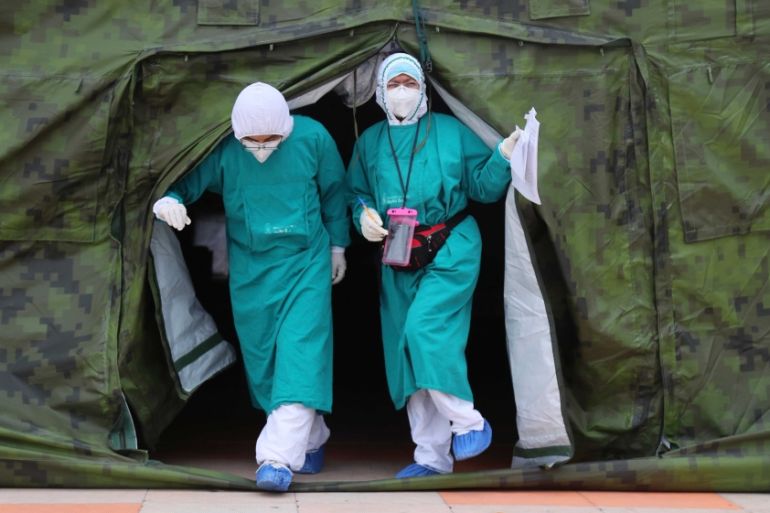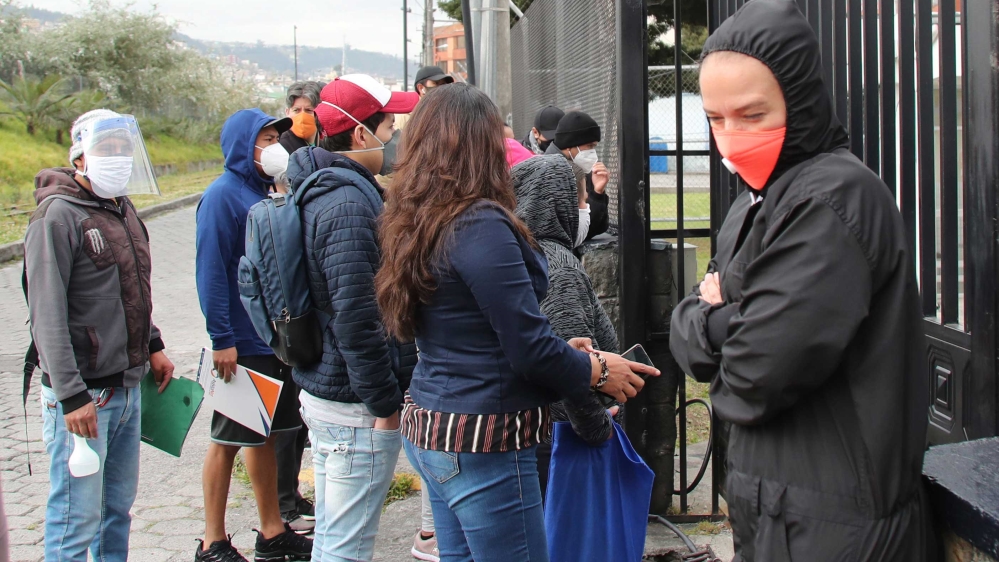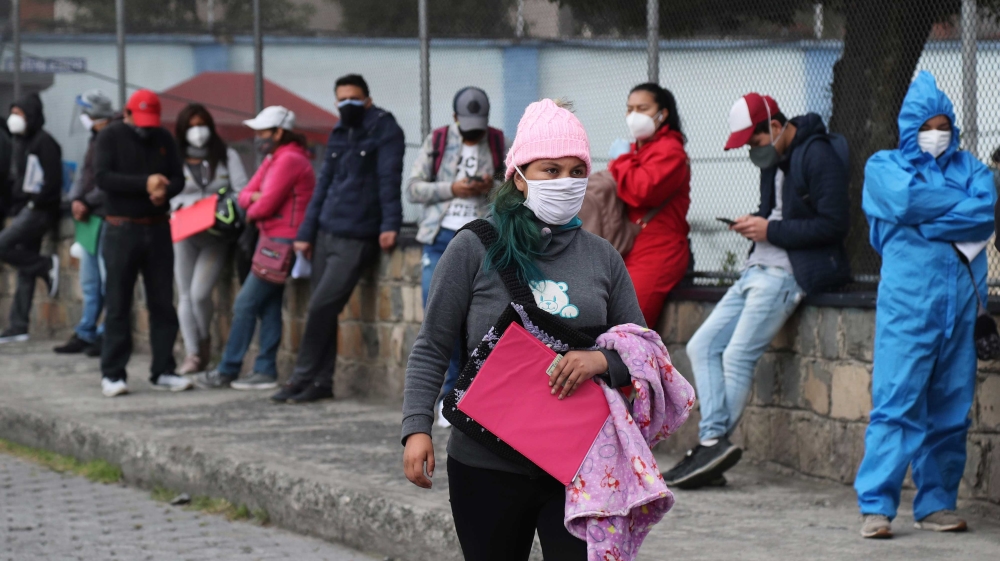Coronavirus surges in Quito after Ecuador eases lockdown
Hospitals in Quito are filling up and the crematoria at funeral parlors are pushed to keep up with demand.

Struggling to breathe, Luis Gualotuna arrived before dawn Wednesday at a coronavirus testing site in the Ecuadorian capital of Quito, which has experienced an alarming surge in COVID-19 cases since the government started to reopen the economy last month.
Hours later, Gualotuna was still in a long line, waiting.
Keep reading
list of 4 itemsWhat is behind the insulin shortage in the US?
Deaf Syrian boy hears for first time after life-changing operation
Aslan, a little Syrian boy’s journey to hear again
“My throat hurts, my body hurts. I have general discomfort, and I came here to find out if I have COVID. There is nothing left to do but wait,” said Gualotuna, a 34-year-old unemployed carpenter.
The new coronavirus first tore through the port city of Guayaquil in March and April, killing hundreds and horrifying people around the world with scenes of bodies left in the street as authorities struggled to cope with the pandemic. The situation in Guayaquil has since stabilised, but now, hospitals in Quito are filling up and the crematoria at funeral parlours are pushed to keep up with demand.
There have been 82,300 confirmed infections of the new coronavirus in Ecuador and about 5,600 deaths from the disease that it causes, COVID-19. Another 3,353 deaths are believed to be linked to the virus. The country has a population of more than 17 million.

Quito has registered 12,747 confirmed cases of the coronavirus and 605 deaths. On June 30, it had reported about half as many cases and 464 deaths. The health crisis has been compounded by the relaxation of social distancing measures as Ecuador tries to get its economy moving again, and by the arrival of the seasonal flu.
“The public is very afraid of the slightest respiratory symptom,” said Dr Marco de la Torre, graduate professor at Central University in Quito. “Queries have exploded for fear of COVID-19, although many have the common flu.”
In past days, hundreds of people with breathing problems have been waiting in line to get coronavirus tests at medical attention sites installed by the municipality. Military tents, some hooked up to an oxygen supply, were erected outside some hospitals to serve a growing number of patients.
Ambato, Cuenca, Santo Domingo de los Colorados and some other cities in Ecuador face a similarly difficult situation, said Health Minister Juan Carlos Zevallos. But he said the government was managing the situation and that “they do not compare in any way to what is happening in the rest of Latin America.”
Brazil, Mexico and Peru, among the hardest-hit countries in Latin America, have reported a combined death toll from COVID-19 of about 150,000. The virus has killed more than 660,000 people worldwide, according to Johns Hopkins University, which keeps a daily tally. The actual numbers are likely to be higher.
Some Ecuadorians are flouting social distancing protocols, selling items in close proximity in the street, or organising parties and informal sporting events.

There are “pockets of disobedience that can trigger infections at a time when we need more control,” although most people comply with the guidelines, said government minister Maria Paula Romo.
For now, many in Quito are waiting – for a better economy, for coronavirus test results, for news of hospitalised relatives.
Marcos De la Cruz stood outside a state hospital in southern Quito on Wednesday. Inside was his brother-in-law, 37-year-old Eddy Rodriguez.
“He can no longer walk, we must hold him from both sides, and he tested positive for COVID,” said De la Cruz, his voice breaking with emotion. “We do not know what will happen.”